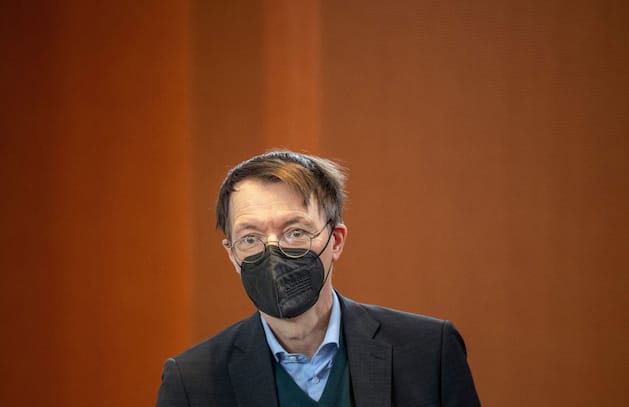Federal Health Minister Karl Lauterbach caused a stir with an interview statement. Now he rows back and speaks of a “technical transmission error”. What’s behind it.
An interview with Health Minister Karl Lauterbach published at the weekend is currently making waves. In it, the SPD politician said about the risk of repeated corona infections: “Studies now show very clearly that those affected are often dealing with an immune deficiency that can no longer be cured.” And further: “If someone has a severely aged immune system after two infections, it is advisable that they avoid further Covid infections.” The interview appeared in the “Rheinische Post” on Saturday.
Criticism was not long in coming. There are no corresponding publications in scientific journals that prove that the immune system actually ages significantly as a result of a corona infection, criticized science journalist Christina Berndt in the “Süddeutsche Zeitung” on Sunday. Lauterbach, who acted “reasonably and prudently” during the pandemic, is acting “irresponsibly” here.
Lauterbach promptly rowed back. Late on Sunday evening he tweeted the SZ article and commented that there had been “a technical transmission error”. It is correct: “Studies now show very clearly that those affected often have to deal with an immune deficiency, the duration of which we do not yet know.” And further: “There is currently no talk of incurable immunodeficiency.”
A technical error or expressed incorrectly? The fact is: A possible aging of the immune system due to corona is currently being investigated. Charité virologist Christian Drosten explained something similar in his “Tagesspiegel” interview at the end of December: “Immunologists are currently getting findings that suggest that this aging of the immune system in children after corona infection is much more advanced than one would expect.” One could “exactly ask whether an unvaccinated child after infection might have the immune system of an 80-year-old at 30,” according to the rather drastic Drosten statement.
The background, as the virologist himself explains, is that young people have many naïve immune cells (to defend against unknown pathogens) that mature with increasing contact with so-called memory cells (to defend against known pathogens). But naïve immune cells cannot be reproduced indefinitely.
However, this also applies to other infections. It remains to be seen to what extent Covid-19 may play a special role here. And so it is not advisable to stir up fears with such statements.








